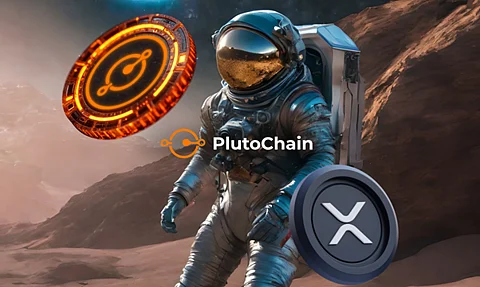

A new lawsuit against the SEC is raising questions about potential conflicts of interest, which leads some to speculate that the regulator might drop its appeal in the Ripple case.
At the same time, PlutoChain ($PLUTO) could disrupt the blockchain space by potentially transforming Bitcoin into a faster, more cost-effective, and versatile asset.
Here’s what’s happening with both projects.
XRP is currently trading at around $2.37, with a slight dip of 0.04% from the previous close. Over the past 24 hours, it has fluctuated between $2.29 and $2.46.
XRP’s legal battle with the SEC continues to be a key focus for investors, but new pressure on the regulatory agency could change everything.
A whistleblower group, Empower Oversight, has taken legal action against the SEC, accusing it of failing to release documents related to potential conflicts of interest involving former official William Hinman.
This lawsuit has led to speculation that the SEC might reconsider its appeal in the Ripple case. If the agency decides to drop the appeal, it could clear a major roadblock for XRP and lead to a significant price surge. Random Crypto Pal predicts that XRP could reach anywhere between $100 and $1,000 within the next 5 to 10 years.
Bitcoin may be the most recognized cryptocurrency, but it still struggles with long wait times and high transaction fees.
PlutoChain offers 2 second block time on its own L2 chain compared to Bitcoin’s standard 10 minute block time. Fees are another major issue, especially when the network becomes congested. As demand increases, these problems continue to limit Bitcoin’s real-world adoption.
PlutoChain ($PLUTO) could fix these challenges. As a Layer-2 solution, it could enhance transaction speeds, reduce costs, and expand BTC’s functionality. This speed boost could make Bitcoin a viable option for everyday purchases, international transfers, and microtransactions — areas where it has struggled in the past.
Apart from faster processing times, PlutoChain could significantly cut transaction fees and make BTC more practical for businesses and individuals.
By integrating Ethereum’s Virtual Machine (EVM), PlutoChain could connect Bitcoin to the wider blockchain ecosystem. Developers could build applications that allow BTC to interact with DeFi platforms, NFT marketplaces, and AI-driven applications.
Instead of being limited to storage and payments, Bitcoin could gain new use cases across multiple industries.
Security is also a major priority. PlutoChain has undergone audits from SolidProof, QuillAudits, and Assure DeFi, along with regular stress testing to ensure network stability.
During testing, it processed over 43,200 transactions in a single day, which proves its ability to scale under heavy demand.
Unlike Bitcoin’s miner-controlled governance model, PlutoChain could allow users to take part in decision-making. The community can propose and vote on upgrades, which creates a more decentralized and transparent system.
XRP’s legal fight with the SEC remains a major factor in its future, and with new pressure on the agency, a resolution could be closer than expected. If the case swings in Ripple’s favor, it could cause a major rally.
Meanwhile, PlutoChain ($PLUTO) might tackle Bitcoin’s biggest flaws and offer a glimpse of what a faster and more versatile BTC could look like. So it might be a good idea to keep it on your radar in the following months.
The information in this article does not represent financial or investment advice. Always research carefully before participating in the crypto market. Risks are inherent in forward-looking statements, which may not be revised.
Join our WhatsApp Channel to get the latest news, exclusives and videos on WhatsApp
_____________
Disclaimer: Analytics Insight does not provide financial advice or guidance on cryptocurrencies and stocks. Also note that the cryptocurrencies mentioned/listed on the website could potentially be risky, i.e. designed to induce you to invest financial resources that may be lost forever and not be recoverable once investments are made. This article is provided for informational purposes and does not constitute investment advice. You are responsible for conducting your own research (DYOR) before making any investments. Read more about the financial risks involved here.
